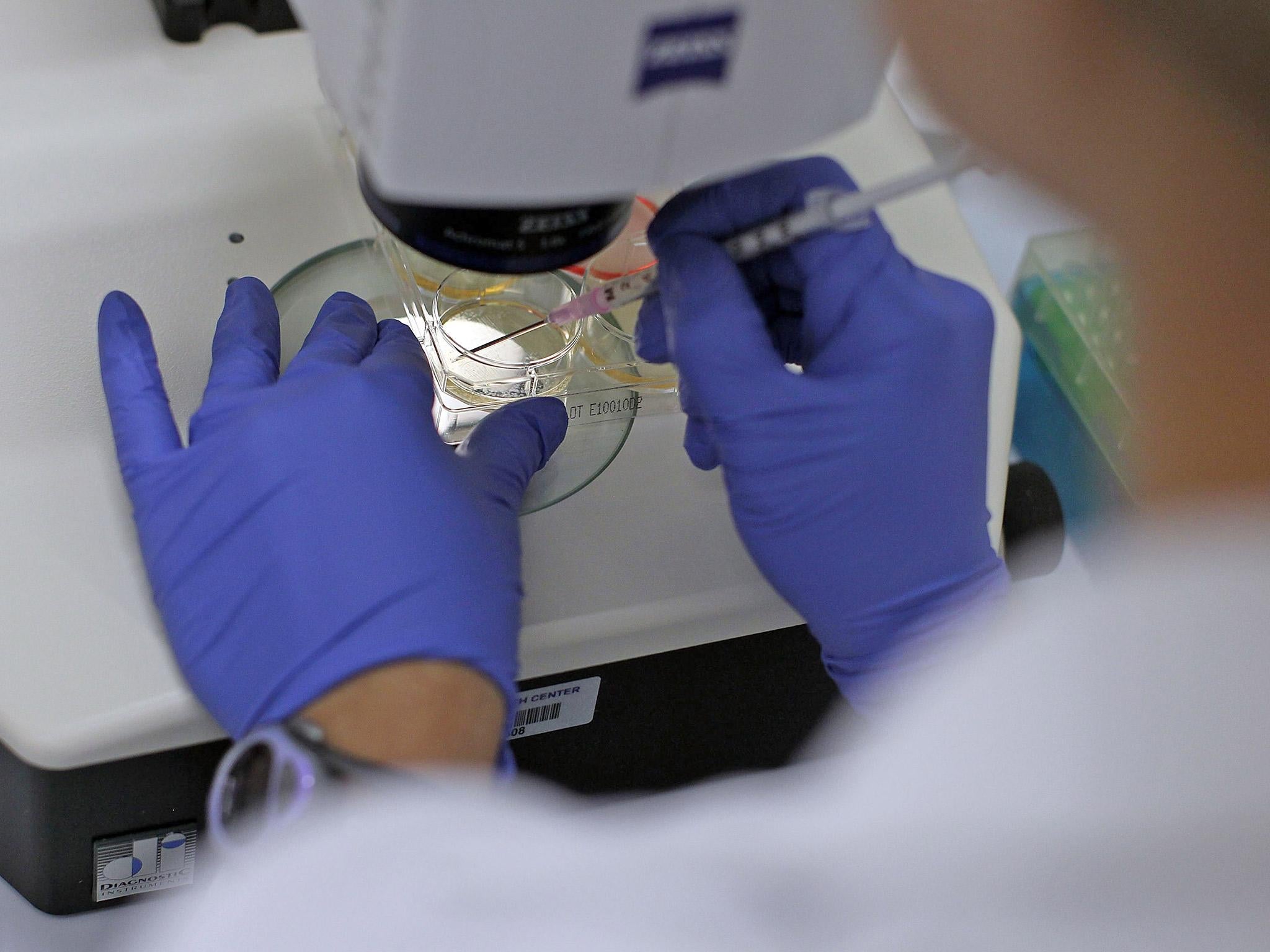Cancer breakthrough offers new hope for survivors rendered infertile by chemotherapy
Researchers have managed to restore ovaries in mice affected by chemotherapy so that they were able to have offspring

Your support helps us to tell the story
From reproductive rights to climate change to Big Tech, The Independent is on the ground when the story is developing. Whether it's investigating the financials of Elon Musk's pro-Trump PAC or producing our latest documentary, 'The A Word', which shines a light on the American women fighting for reproductive rights, we know how important it is to parse out the facts from the messaging.
At such a critical moment in US history, we need reporters on the ground. Your donation allows us to keep sending journalists to speak to both sides of the story.
The Independent is trusted by Americans across the entire political spectrum. And unlike many other quality news outlets, we choose not to lock Americans out of our reporting and analysis with paywalls. We believe quality journalism should be available to everyone, paid for by those who can afford it.
Your support makes all the difference.A potentially “phenomenal” scientific breakthrough has offered fresh hope to cancer patients rendered infertile by chemotherapy.
For the first time, researchers managed to restore ovaries in mice affected by chemotherapy so that they were able to have offspring, The Daily Telegraph reported.
The scientists now plan to begin clinical trials to see if the technique, which involves the use of stem cells, will also work in humans by using umbilical cord material and possibly stem cells taken from human embyros, if regulators agree.
Lead researcher Dr Sara Mohamed, of Mansoura Medical School in Egypt, said she had decided to try the technique after meeting a 22-year-old cancer patient.
“It was very emotional for me so I decided to pursue it and work on it,” she said.
“We injected stem cells in the ovaries of mice which had chemotherapy and were damaged and we got very good ovarian function restoration.
“We are now working on translating that into clinical trials [for humans].”
Stem cells are cells that can turn into any cell in an animal’s body.
Chemotherapy kills eggs and damages ovarian tissue and can lead women to go through the menopause earlier than normal.
More than 20,000 women of child-bearing age get cancer every year.
Consultant gynaecologist Dr Stuart Lavery, of Imperial College London, told the Telegraph: “This is a very exciting piece of research that adds to our understanding of how cells differentiate to become egg stem cells.
“There remains an enormous amount of work to see if these results would be transferable into humans, but it does provide realistic hope that post-chemotherapy patients could restore ovarian function and possibly fertility.”
Dr Edgar Mocanu, of Rotunda Hospital in Dublin and the International Federation of Fertility Societies, said: “This could open phenomenal opportunities.”
The study was revealed at the American Society for Reproductive Medicine’s annual meeting in Baltimore.
Join our commenting forum
Join thought-provoking conversations, follow other Independent readers and see their replies
Comments